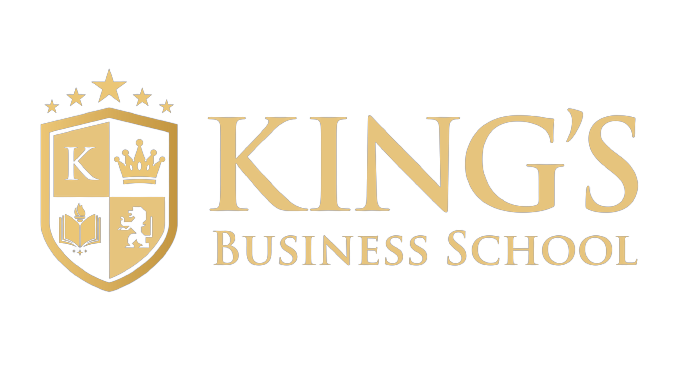Negotiation is a skill every good communicator should have. If you’re looking to improve your negotiation skills then it is really important to focus on practical real life role-playing sessions amongst your team members. A role-playing task can help you develop the skills to adapt at any given situation. This helps build your confidence as a communicator.
Here’s how to improve your negotiation skill:
1. Clear Communication:
- To be able to negotiate and get the results you want, effective communication is important.
- During the negotiation, you should express your objectives and boundaries clearly.
- Listening actively to others’ needs prevents overlooking key negotiation aspects.
2. Emotional Intelligence:
Emotions undeniably influence negotiations and can be leveraged strategically.
- Positive emotions, for instance, can foster trust among negotiating parties, while channelling anxiety or nervousness into excitement can shift perspectives positively.
- Mastering emotional intelligence is key; it enables you to discern others’ emotions, decipher implicit cues, and effectively manage your own emotions.
- This skill empowers you to navigate unspoken signals, making it possible to capitalise on emotional dynamics to your advantage during negotiations.
3. Planning:
Properly preparing with clear objectives and defined boundaries is pivotal in any negotiation. Insufficient readiness might result in overlooking crucial deal terms or potential alternative solutions.
- The Zone of Possible Agreement (ZOPA), also known as the bargaining zone, delineates the range where mutual agreement between parties is plausible.
A positive ZOPA occurs when there’s an overlap in acceptable terms. Conversely, a negative ZOPA arises when no overlap exists.
- Understanding your Best Alternative to a Negotiated Agreement (BATNA) is equally crucial. If negotiations fall into a negative ZOPA, your BATNA becomes the course of action in case an agreement is unattainable.
Being aware of your BATNA serves as a backup plan, ensuring you don’t walk away from negotiations empty-handed.
4. Value Creation:
Developing the skill of value creation is pivotal in negotiation strategies. Picture negotiations as a scenario where everyone aims to secure the largest possible “slice of the pie.”
Striving for a bigger portion often means someone else receives less.
To circumvent this, a shift in mindset is crucial—move away from merely enlarging your slice and focus on expanding the entire pie.
This shift yields dual benefits: firstly, it unlocks greater overall value for all involved, and secondly, it fosters a sense of rapport and trust that lays the groundwork for smoother and more successful future discussions.
5. Strategy:
Craft a tailored negotiation strategy by understanding roles, assessing value, considering counterparts’ perspectives, and self-assessment.
This clear plan fosters collaboration toward a mutual goal.
6. Reflection:
To craft a robust negotiation strategy, several key steps are essential.
Begin by defining your role in the negotiation dynamics, comprehending the unique value you bring to the table.
Equally crucial is considering your counterpart’s perspective, understanding their motivations, needs, and strengths. Continuously checking in with yourself throughout the negotiation process ensures alignment with your objectives and keeps you on track.
This strategic process fosters a clear plan, allowing a comprehensive understanding of each participant’s roles, offered value, and advantages, all of which work cohesively toward a mutually beneficial outcome.
Professional Negotiation:
Consistent practice enhances negotiation skills. Utilise structured learning opportunities such as negotiation literature and real-life case studies to gain insights into successful negotiation strategies and conflict resolution approaches.
Benefits of Negotiation Skills
1. Relationship Building:
Negotiation fosters solutions despite differing opinions, emphasising goodwill and value creation. This cultivates long-term relationships rather than short-lived agreements.
2. Quality Solutions:
Effective negotiation leads to solutions that are not temporary fixes but sustainable resolutions. Both parties contribute to a solution that satisfies their needs, ensuring a lasting outcome.
3. Conflict Prevention:
By reaching a mutual solution, negotiations minimise the likelihood of future conflicts. By agreeing on common ground, it reduces potential friction points.
4. Business Success:
Strong negotiation skills serve as a catalyst for achieving business objectives, creating an environment conducive to success. By facilitating successful negotiations, businesses not only meet immediate goals but also lay the groundwork for future transactions and collaborations.
These fruitful negotiations not only build trust but also enhance relationships and expand opportunities. This, in turn, ultimately bolsters overall business prospects, paving the way for sustained growth and prosperity.
Types of Negotiation Strategies
1. Distributive Negotiation (Win-Lose):
Involves hard bargaining where conflicts centre around a single issue. Each party believes their gain comes at the expense of the other. For instance, haggling over the price of a product or service.
2. Integrative Negotiation (Win-Win):
Focuses on interest-based bargaining where both parties can benefit through trade-offs. It seeks to create value and mutual gains, such as finding a middle ground on pricing or terms.
3. Negotiation with Coworkers:
Essential for collaboration within departments. Requires resolving differences by understanding each other’s perspectives and finding common ground, like rectifying code errors between software developers and test automation engineers.
4. Negotiation with Management:
Crucial for discussions regarding job duties, salaries, and benefits. Clear and respectful communication is vital when negotiating with superiors to ensure job satisfaction.
Tips to Enhance Negotiation Skills
- Preparation: Enter negotiations with a clear understanding of your goals and willingness to compromise for resolution.
- Readiness to Compromise: Ego aside, be open to compromise for mutually beneficial agreements.
- Setting a Timeline: Establish deadlines to prompt reaching a resolution and prevent prolonged negotiations.
- Offer Multiple Solutions: Present various possible solutions upfront to streamline the negotiation process.
- Confident Communication: Emphasise confidence in your proposals to persuade others effectively.
- Accepting Failures: Learn from failed negotiations without taking them personally; use them as opportunities to improve.
- Address Weaknesses: Sharpen planning, communication, persuasion, problem-solving, and listening skills to enhance negotiation prowess
- Practice Negotiation: Regularly engage in mock negotiations to refine skills and gain confidence in real-life scenarios.
At King’s Business School, negotiation skills are fundamental for preparing students in today’s dynamic business world. We focus on integrating extensive training throughout our curriculum, employing interactive workshops, case studies, and real-world simulations.
By nurturing critical thinking, effective communication, and the knack for finding mutually beneficial solutions, King’s Business School equips students not just for success in business but also for life’s myriad challenges. Furthermore, these skills serve as versatile tools that transcend the boardroom, empowering graduates to navigate complexities, forge meaningful connections, and achieve mutually rewarding outcomes both professionally and personally.





